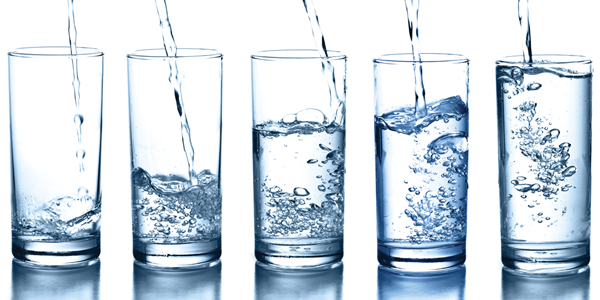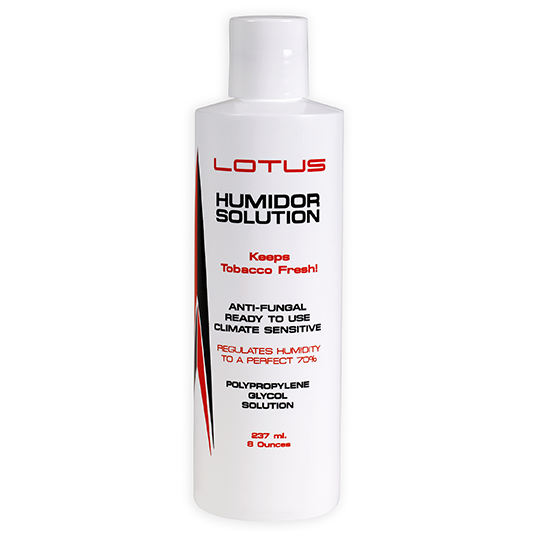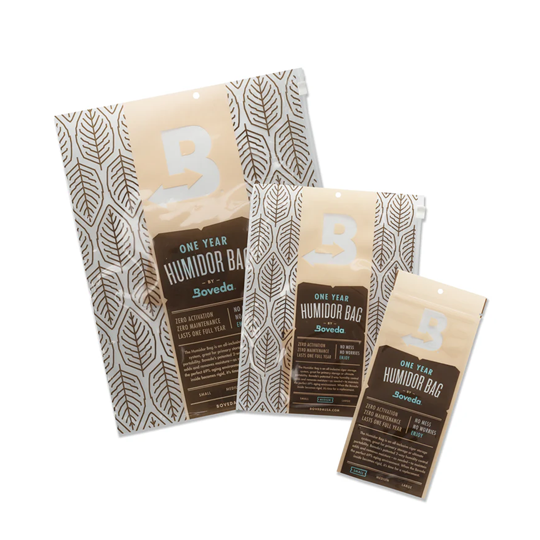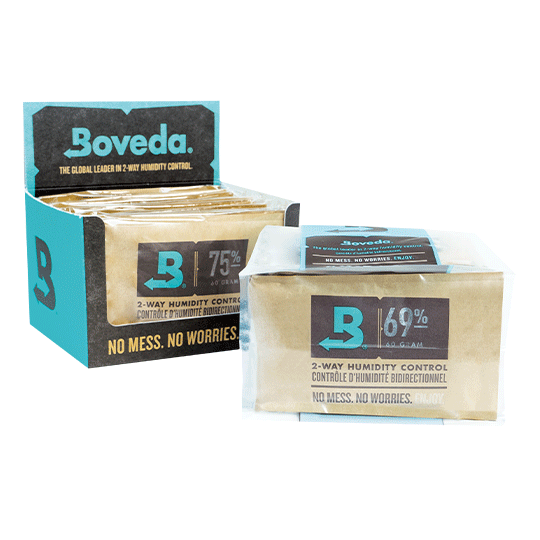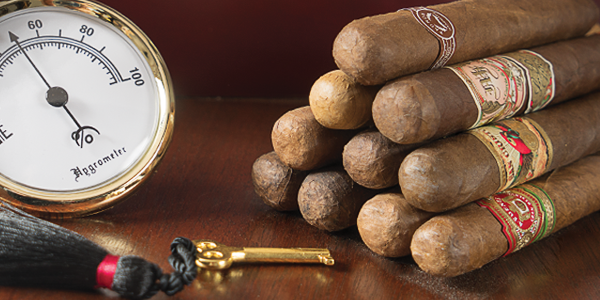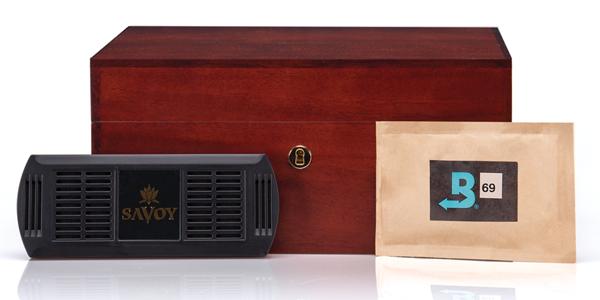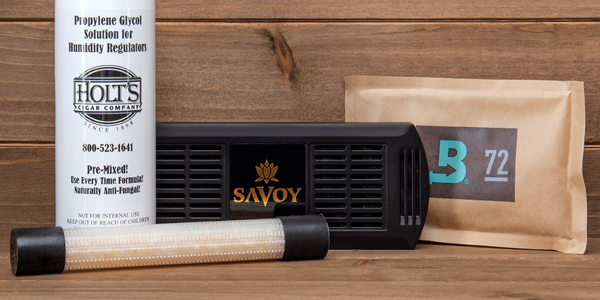Why the Type of Water in Your Cigar Humidor Matters
We can’t stress it enough. Using tap water in a humidor is a death sentence for your cigars. Ignore the neophytes who say otherwise. Tap water contains a wide variety of bacteria and sediment that isn’t a concern if you drink it, but introducing it into a humidor is an entirely different story. Not to instill panic, but for the sake of emphasis, consider using tap water in your humidor the equivalent of putting diesel in a car that takes gas. You can unintentionally ruin hundreds or thousands of dollars’ worth of cigars, depending on how many you’re storing.
What Will Tap Water Do to My Cigars?
Tap water can introduce your cigars and your humidor to mold. The bacteria in tap water that our bodies conveniently process when we drink it will seep into your humidification unit, the wooden lining of your humidor, and your cigars. Once there, bacteria can grow and thrive and develop into mold – a circumstance promoted by the humidity in your humidor. The good news is that preventing mold is easy.
Moldy Cigars
Mold does not grow overnight and can take days, weeks, or months to show up. But once it has arrived, it is difficult to eradicate. Mold is distinctive in appearance – it is bluish-green in color and can form on the foot of your cigars as well as the wrapper. It can emit a funky, musty aroma as well. Mold is invasive and often has a sticky, pasty texture. It won’t brush off your cigars. If you notice mold on any cigars throw them out. They are unsmokable because mold can be a dangerous and toxic substance and certainly not something you want to ingest. Once mold has been detected, it’s also a good idea to remove your non-moldy cigars and quarantine them in a Ziploc bag with a humidity pack or a Boveda Humidor Bag for a few weeks to make sure they do not show signs of mold.
Eradicating Mold from a Humidor
If there is mold in your humidor, there are a handful of techniques for gently sanding it out. Remove your cigars and use a fine-grit sandpaper to sand the infected areas. It may be easier if your humidor has dried out a bit. After sanding, wipe down any infected areas with isopropyl alcohol. If mold appears on or near your humidification unit, toss it out and replace it.
There is no guarantee you’ll fully eradicate mold, but it’s worth a try – especially if your humidor is an expensive model. After replacing the humidification unit and re-humidifying the box, leave it sit for a couple weeks before putting your cigars back inside. You want to be confident the mold is not going to recur in the humidor itself.
Do Not Confuse Mold with Plume
Plume is a white crystalline substance that forms in tiny dots on the surface of cigars. Plume is not mold and is no cause for alarm. You can easily brush plume off your cigars and plume is actually a good sign – an indication that your cigars are aging properly. Plume can develop when you’re using distilled water or propylene glycol solution.
What Happens if I Used Tap Water in My Humidor by Accident?
Using tap water in your humidor once (because you didn’t know any better or you ran out of distilled water) is not guaranteed to provoke an outbreak of mold. You could get away with using tap water without negatively impacting your humidor or your cigars, however it’s definitely not worth the risk.
If you run out of distilled water, you’re better off letting the humidity in your humidor dissipate than substituting tap water, even for a single instance. Mold takes time to develop, so you won’t know right away if tap water has an adverse effect on your cigars. If you’ve been unknowingly using tap water, stop and keep an extra close eye on your cigars. It’s probably not a bad idea to pre-emptively replace your humidification unit.
Why Distilled Water or Propylene Glycol Are Best
Distilled water and propylene glycol (also called 50/50 solution) are best for your humidor because they are free of the harmful bacteria and impurities that create mold. You can pick up a gallon of distilled water at the supermarket or convenience store for around a dollar or two. You can buy propylene glycol right here at Holt’s or any premium cigar retailer. Propylene glycol offers the added advantage that it won’t over-saturate your cigars because it stops releasing moisture once a 70% RH (relative humidity) has been achieved. Invest in a digital hygrometer if your humidor didn’t come with one and monitor your humidity regularly.
Can I Get Mold in my Humidor from Distilled Water?
The short answer is yes – unlikely, but yes. How? You can still get mold in your humidor even if you’re only using distilled water or propylene glycol – however, distilled water and propylene glycol aren’t going to cause mold. The two most common reasons mold develops in a humidor that is humidified correctly are 1) over-humidification and 2) storing a cigar that was previously exposed to mold in your humidor. Don’t push your humidity past 70% or 72% RH. Going above that threshold is too much humidity for cigars and can promote the growth of mold over time. Also, if a buddy hands you a cigar that was inadvertently exposed to mold, you can transfer an outbreak of mold right into your humidor. Inspect any random cigars before you toss them in your box to be safe. If need be, isolate them in a Ziploc bag with a humidity pouch for a few weeks to make sure they’re okay before you put them in your humidor.
Humidity Pouches vs. Distilled Water
If the fuss over distilled water or propylene glycol is too much maintenance for your taste, you can always consider humidity pouches like those made by Boveda in lieu of a traditional humidification unit. Humidity pouches can be a little more costly in the long run, but they are low maintenance. When your pouches firm up, simply toss them out and replace them with new ones.

